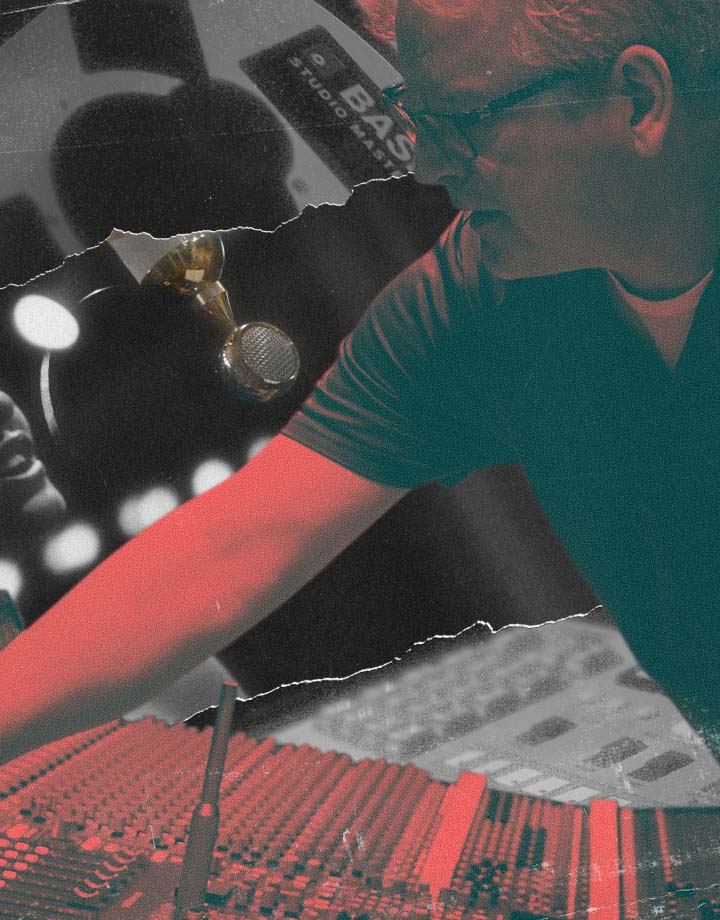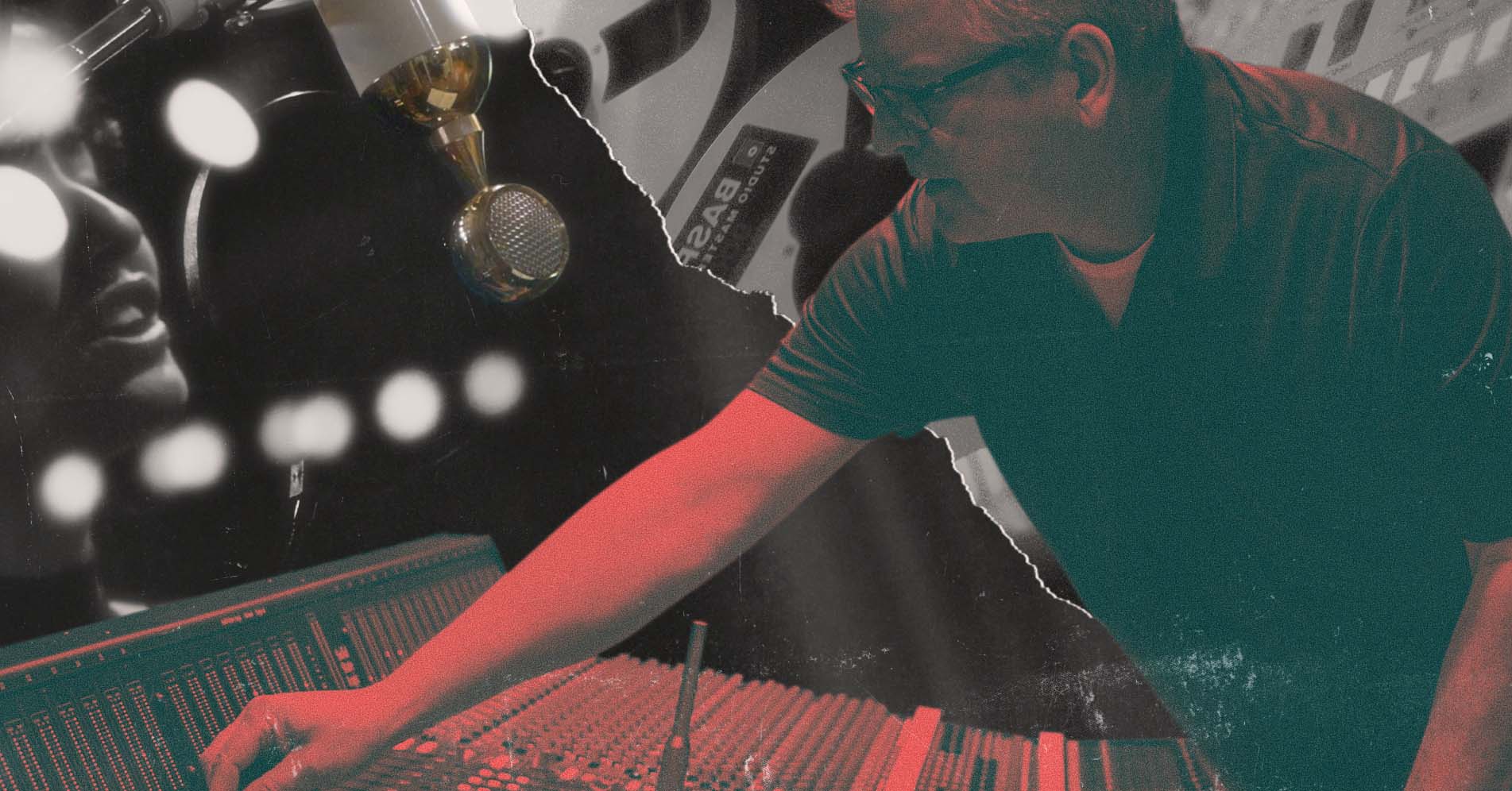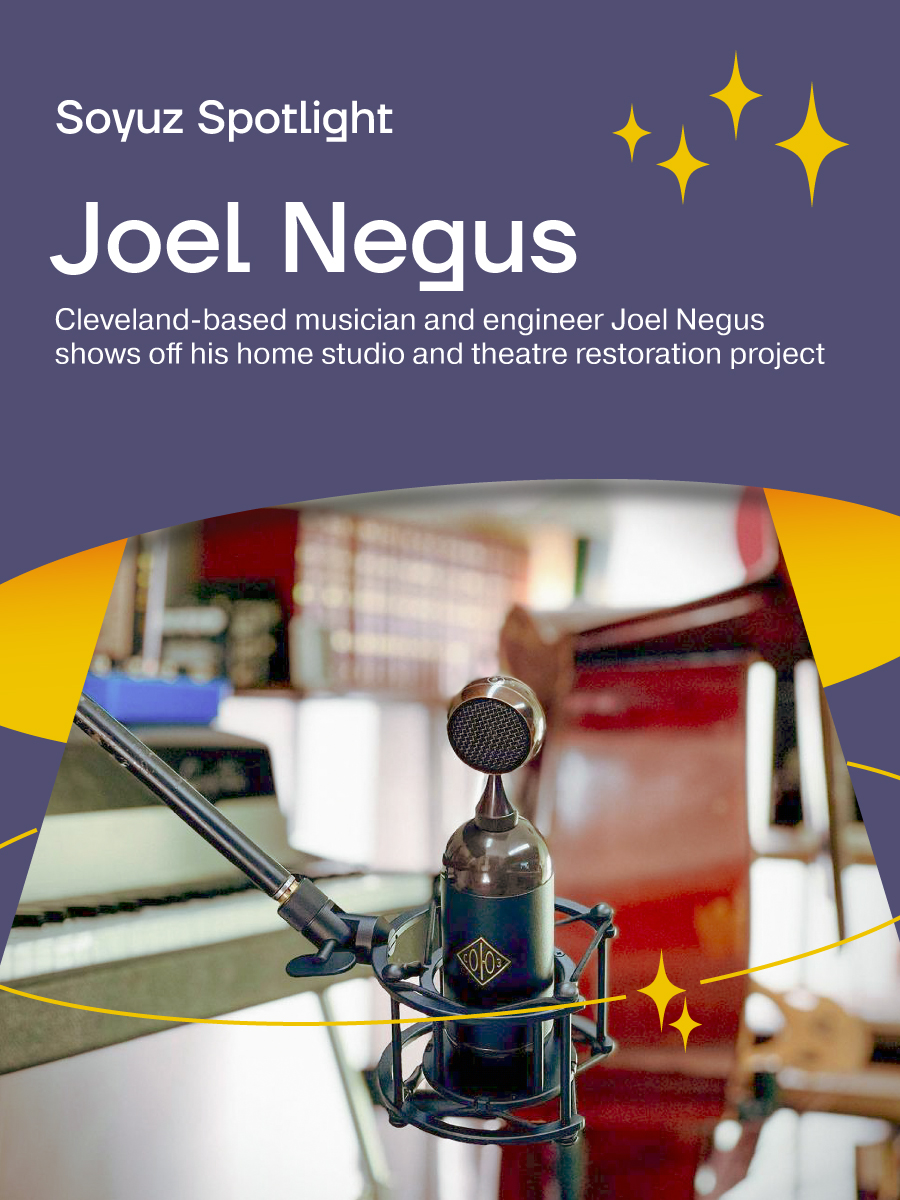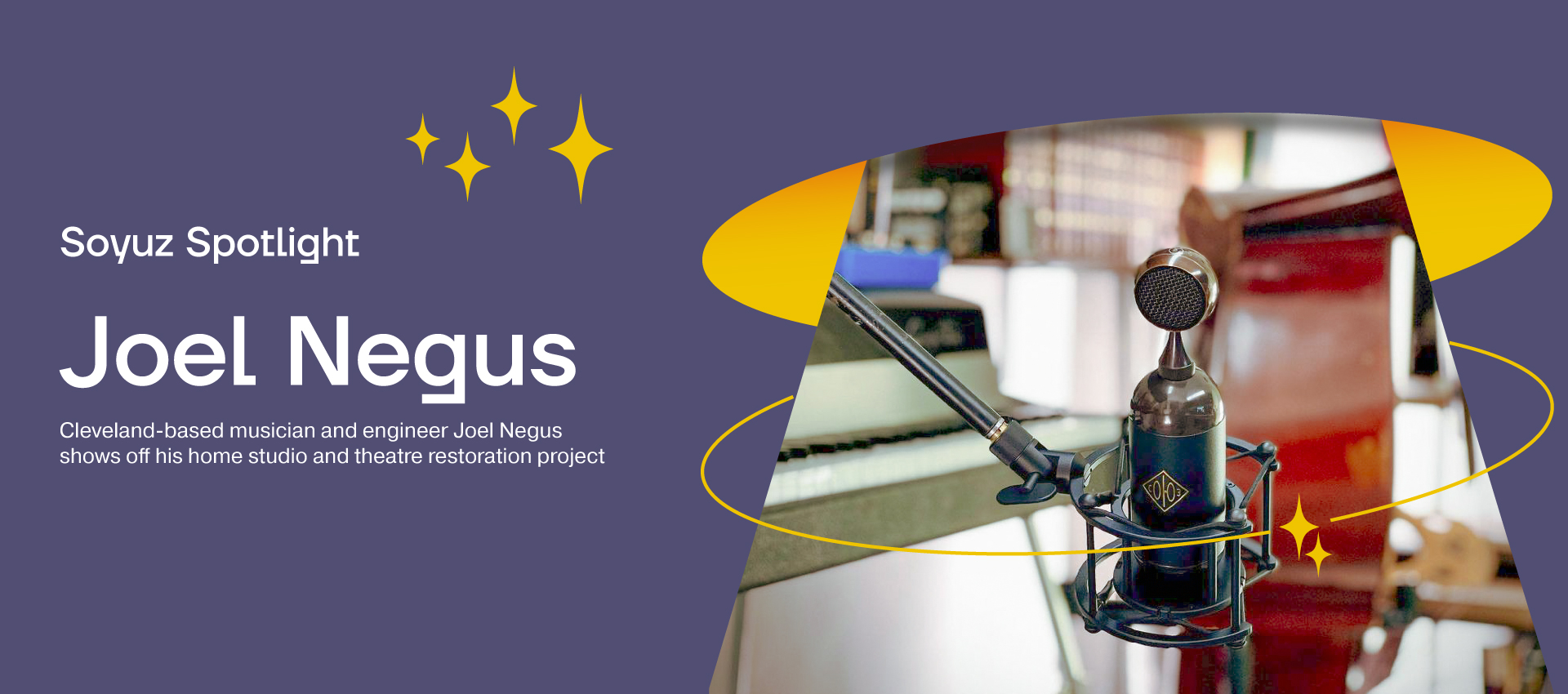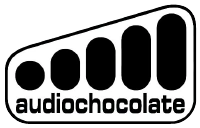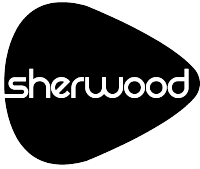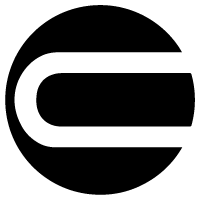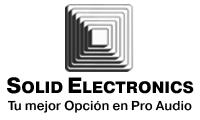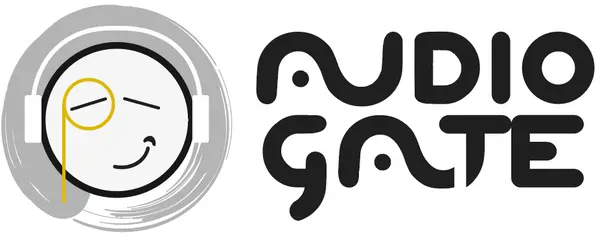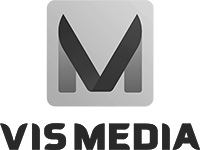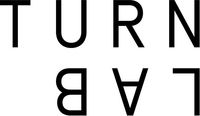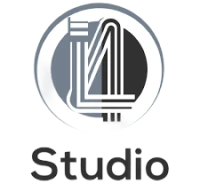For some, getting the creative process started can be the hardest part of making music. For others, just the promise of a blank canvas is enough to inspire them. Either way, the journey to finishing a piece of art is completely different for everyone who picks up a paintbrush, typewriter or instrument.
In our new blog series, Creative Like Clockwork, we’re sitting down with artists to talk about what inspired them to start making music, the tools of their trade and how they like to innovate in the studio. We thought there to be no better interview subject to start with than the one, the only, True Cuckoo.
There is something distinctly freeing about Cuckoo’s work. The Swedish-born, Norway-based synthesist is a multidisciplinary creative that sheds normal conventions to build something wholly his own. Unbound by genre and open to experimentation no matter the platform, this is an artist creating on their own terms.
Let’s get to our conversation with Cuckoo.
Cuckoo, how did you get into making music? What specifically led you to synthesizers?
Music has always been something that I’ve cared about. It’s rooted at a very deep level within me. I think if you’re into music and it’s something that deeply resonates with you, it’s hard to explain why you get excited about it. There’s just something there inside of you and music is very high up on the list of what’s important to you. I think I am one of those people. If there’s music, I’m excited and I want to be there.
When I grew up I was singing a lot, I was always plinking and plonking on different pianos that I found. Some friends of mine had a keyboard, we had an electric organ that I enjoyed playing and creating melodies on. When video games came along, I became sucked into the video game music world and tried to catch the tunes and recreate them on whatever I had. It even became like a little game I had with a friend of mine. When school was done and we were waiting on the tram to get home, we’d try to mimic music or sounds from video games and say, “OK, guess what this is [Makes sword swiping noise],” and make some weird noise. “Oh yeah, that’s this funky little bastard in Metroid.”
I think video games in general had a very fundamental influence on me when it comes to steering towards synthesizers. I still draw from that when creating music today. That influence is right there, just a half arm’s length away, even though it was 30 years ago.
What was the first piece of synth gear that you searched out on your own and brought home to play?
I think there was a middle ground where I got my first computer and got music software. I used a platform called Amiga and software called ProTracker and that was my first little step towards electronic music production with this Tracker workflow.
In terms of synthesizers, I believe it was the Korg M1 that was my first one. I thought about it long and hard and I went to the music store after school every day. I tried all the synthesizers out there and always ended up on the Korg M1. It had some really nice orchestral sounds, what I thought were nice orchestral sounds, an 8-track sequencer and I started to create my video game inspired adventurous soundtracks in the music store.
Later on, I decided for my school work that I was going to write a violin quartet as my examination project. I did that but with the help of the synthesizer. I used it to make my sketches and write out all the sheets for the musicians. It was my first real tool that I sought out and really used for a long time.
How do you define creativity?
I think keeping an open mind, and keeping doors open is part of creativity. To follow up on the little sparks of curiosity, and see where they lead. You wanna express something through music, right? Even if it’s unclear, and hard to put into words, you want to connect. In my background as an animator, and animation director, I had a rule of thumb, that I have brought over to my music creativity; “If it communicates, it’s good enough.”
What informed your creative approach to making music?
In music making, I’d say that I’m mostly self taught, apart from music theory which was part of the curriculum at my school at age 10-15. We had music classes once a day at my school. My many hours by the pianos and synths in life I’ve spent exploring, making melodies, inventing sounds, creating little performances. I just love doing that. Perhaps with the roots in video game music, it’s easier to feel free, creative and playful. There are some really fun game soundtracks out there. Kirby on the 8-bit Nintendo comes to mind. What fun and crazy tracks! Stuff like that has formed me more than I would like to admit, probably.
When you’re getting ready to start a new project, how do you approach it?
For me, sometimes there is something inside of me that’s holding me back. I’m not sure if you could call it “procrastinating,” but I feel like I have too much stuff on my mind, so it’s tough to feel like I’m dedicated to something in an instance. The first thing I try to do is straighten my thoughts. Like when I get to work in the morning, I deliberately walk to my studio. It’s not a long walk, but I find if I take my bicycle, it’s just a five-minute ride and it’s too quick. It’s not enough time to separate myself from home and the studio. A walk, it takes me 15 minutes, still not a long walk, but it’s enough to slowly zone in. I try to catch myself checking my phone on the walk, I try to put it away because checking my phone is not getting me into the zone. So Step 1 is to brush away the stuff that’s on my mind.
I’m making a lot of different things, I’m making music that is just for me, music that is for a live show. Maybe I’ve been commissioned to do a live show and I don’t have a set I want to perform, so I need to perform a new set. Then that’s a clear goal because I know it has to be 40 minutes, it has to be something I’m eager to show. Then it’s very clear what I need to do. I choose my gear, choose my mindset. Do I need to sing? Do I need samples? Maybe not. Then slowly, little by little, I start honing in on what I want to do and I start creating.
It’s always a lot of ups and downs and breaks and stuff that I’m not happy about. Maybe it’s because I come from an animation background, but I’ve been very used to scrapping ideas and replacing them, refining, taking stuff out that doesn’t really make it for me. When you’re making a storyboard, you do that all the time. You’re doing something and, “Huh, it doesn’t really work,” and you say, “This part it doesn’t really work, throw it out.
How do we go from here to here? It doesn’t really match up. Throw this away too.” Then maybe you’re like, “OK, just throw everything out and start from scratch. Let’s go.” I’m not afraid of doing that and it feels really good that once you get into a project and you’re not afraid of starting over with a song.
Is there a particular instrument that you like to start a new song on?
I’m not sure. I always want to find new favorites, but sometimes you rely on these good old things you know everything about them. It comes down to what the project is. Like a month ago, I decided I wanted to make a video game soundtrack that is a live set that sounds like a Sega Genesis soundtrack. I always wanted to do that on the Elektron Digitone and that kind of set the rules and boundaries for that project. So it was Digitone only and let’s go.
If it’s more of a project with a lot of different ideas, I am always in the back of my head thinking, “Is this something that I’ll want to perform live,” then it’s the Octatrack. The Octatrack is a very good platform where you can play around, funk it up, destroy it a little bit, collect lots of samples and you can also control synthesizers from it. For me, the Octatrack is one of those go-to platforms, but I don’t start out on it. It comes in later.
It’s like if I have a song I know want to perform live, I start by recording piano, maybe some acoustic elements, some vocals, some synthesizers and I record snippets. I mix it, make it sound good, but maybe the song is just 25% ready and then I take those assets, push it over to the Octatrack and chop it up there and continue the process there. Once I start fiddling around with the Octatrack, I know it’s going to color the composition in such a huge way.
When you pick up a new piece of gear, what’s the first thing you do? How do you unravel the mystery of a new tool?
I spend a few seconds listening to factory presets. Usually they factory presets are very genre specific, or just familiar in general. I rarely use them, but they could give a tad of insight in what is possible with the instrument. Then I immediately start poking around and try to make up an understanding in my brain for the gear in question. I rarely read manuals. I love the exploration factor, and I’m finding it easier to remember that way.
You really have a keen knack for blending acoustic and electronic instruments together in a seamless way. Can you talk a bit about your approach?
Sometimes I’m looking for that magical sound and I’m ready to use whatever means that pops in my head to reach for that. It’s rarely something I decide very early on, it’s kind of sporadic. Sometimes I just start on a project and “Oh an accordion would be nice here. I have a really bad accordion, maybe I’ll try and make that work,” and then do some stuff on that. Maybe it’s like “Yeah, what about a flute here? That would be really nice. I’ll try some samples. Ah, that doesn’t do it.” I’ll bring my own flute and do my best to sample it. It’s just so much fun to blend the acoustic world and the electronic world.
Sometimes the electronic sounds can be a little genre-specific. It leads people to be like “Oh I know this sound, it’s a synthesizer, therefore it must be techno.” I don’t like genres in general. There’s something bigger I’m looking for. When I’m scouting music, I pay no attention to genre, but all of the music on music services, they’re like “Oh you like this, then maybe you’ll like these other songs in the same genre.” No, I don’t. They don’t do it for me. It’s a spark I’m looking for. It has nothing to do with genre. So mixing the acoustic world and electronic world is very natural to me. I don’t want to stay in the electronic world just to be there. They are instruments just like any other instruments, they are meant to be played together.
What’s your general recording set-up?
I’m using Logic Pro. I got a new Mac, an M1 Pro. I’m using a Fireface UCX audio interface from RME. RME is great because they always update their drivers. I have some Universal Audio stuff too. That’s all the hardware.
For microphones, I have the Soyuz 013 FET, I have a pair of them. I’ve been using them for everything after I got them. I’ve had them for two and a half years. I have been eyeing the 017 FET because I tried it for a couple of months and I can’t get it out of my head. It’s the best vocal mic for my voice. When I used that, I created a whole new music set with vocal samples from that microphone.
It’s so difficult to produce vocals. There’s always something wrong with something. You need to be really particular with the EQ and even then it still doesn’t sound good. But with the 017, I was like “This sounds good, this sounds amazing. Maybe if I just cut the bass a bit, no don’t really need to do that. Maybe if I nudge the top, no, no I don’t need to do that.” It’s just perfect from the get go. I couldn’t believe it.
With the electronic stuff, I rarely use technological solutions for syncing up perfectly between gear and the timeline. I just wing it. I just press play and wing it. Set the BPM to be the same on each device and wing it. Some of the projects that are heavily based on these machines, like the Elektron Octatrack set or Teenage Engineering OP-Z set, if the song ends up being four minutes, I record 15 minutes of that song and make transitions over and over again until I feel like I nailed that part. Then I edit it together.
What are five tips that you would suggest someone do to shake up their creative routine?
Some people are so happy within their genre because it’s what they enjoy and that’s fine. It’s not for you, but I think my top advice is to always be curious. Be curious, be genuinely curious. Don’t close the door on stuff because you never know the things you learn in life, how they will suddenly connect at the most unlikely time. Then you’ll be really happy you didn’t close the door. Be curious, explore.
Number two, don’t be afraid of being judged. It’s normal to be afraid of being judged, but that might hold you back. It’ll make you a less creative person. It’ll make it harder for you to make bold advancements in your creativity and you’ll be less tempted to try out new stuff. And if you’re working with people, you’ll be afraid of the other people judging you. I hope you can have a sound relationship with the musicians around you where you have open doors between you. If you don’t, maybe if you can bring that up to the group that might benefit all of you.
Three. Because I don’t really commit to genres, I don’t know how to describe my music and sometimes I call it “smile music.” I think you should let your smile guide you a bit. If there’s something that makes you happy, brings a smile to your face, that must mean you’re onto something. It can be moody, it can be sad music, but there can still be room for a smile in any music. A smile doesn’t always mean happy music, but it can mean that you’ve found something that you resonate with. Maybe it’s a bit Marie Kondo, but does it spark joy? I think there’s something in there. Be alert with these signals inside of you. You might go down a spiral of negativity and before you know it you’re pretty far down. You might be thinking “I put all of this work, I have to finish it.” Try to be alert in the early stages and if you don’t really like it, change it up. Don’t be afraid to change it up. Let your smile guide you.
Four. Amazing production most of the time can’t hide a boring song. Sometimes amazing production is so much a part of the actual song, it’s hard to separate them. Some genres, especially electronic genres, it’s the same thing, you can’t separate them. But, I think if you’re unsure of whether it’s a good song or not, try to simplify it. Maybe all of those chords, all of those rhythms, all of those layers didn’t make it better. Maybe it just made it harder to absorb. With simplifying, especially coming from the old, old 8-bit gaming soundtrack music, you had three channels of audio and maybe a noise channel. What could you do with that had to be really streamlined and I think if you sing a song, no matter what type of song it is then you know it won’t have too many conflicting ideas going on at the same time and it will able to stand on its own two legs together, instead of relying on very complex production.
We’re all getting stuck at some point and when you get stuck, I think you need to catch that moment very quickly and acknowledge it. “OK, well I got stuck, it’s OK. Take a break, get out of here, clear your mind.” It’s very easy to get stuck, but still keep doing it and try and be persistent. When you get stuck, it’s really great to get up and get out. Maybe have a good cup of tea, go out, look at the sky, get some new impressions. I think it’s easier to make some creative calls when you’re a bit fresher in your mind. Especially if you’ve been working with some music that’s very intense for a long time. If it’s really loud, you’re wearing out your ears, wearing out your brain, maybe your body. The more you wear yourself out, the less nuances you’ll hear. Take breaks, even if you’re on a deadline. Maybe it doesn’t have much to do with getting outside of the box, but it’s a healthy practice.
You’re committed to keeping your music genre-less, yet it’s still appealing and memorable to listeners. How do you go about constructing catchy music without limitations?
Hah… First of all, thank you! It always means a lot hearing from people and realizing that this “Cuckoo” stuff that I’m doing is actually reaching through. Maybe my tip number three comes to mind. The smile factor to me is kinda leading the way and tells me whether it’s catchy and memorable. However, I’m using a lot of sequencers in my music creation. And they are by design limited. There are patterns and loops that are designed to make it quick to work with, and easy to get an overview of. Polyphony is limited. Sample memory is limited. Perhaps when the boundaries are so rigid and tight, it becomes easier, and more fun to break it?
